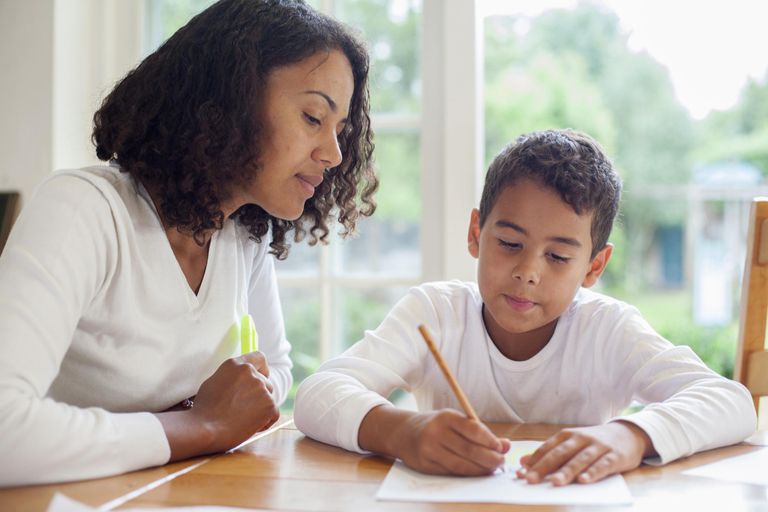
It is known that professional therapists and counselors express considerable worry over risks with families locked up 24/7 together for an indefinite period. Parents may be joking on social media about their childcare experiences as more and more states go into lockdown with the Coronavirus. Learning to structure your children’s time is essential during school closures.
Being locked down gives us the chance to spend lots and lots of time with our children which can be a wonderful thing. But when we have to work from home and we are all stuck together in a small space, tensions can escalate.
Your child’s school has canceled in-person classes due to the Coronavirus outbreak, and you are worried about an academic freefall or a home-schooling free-for-all where you end up playing the homework police all day, every day — while also working from home?
Regardless of the situation, this is a great opportunity for parents to learn how to structure their children’s time when school is out. For example, wearing pajamas signals to children that their day hasn’t started or that they are on vacation.
Structuring a Routine While at Home
Kids of all ages, and adults too for that matter, perform best with structure. When they know what to expect, they can adjust better and more successfully moderate their mood and behavior.
Maintain a consistent bedtime.
When kids say, “But there’s no school tomorrow!” reply with “Yes, but your brain and body are still growing, and tomorrow you will learn something new.”
Maintain a consistent wake-up time.
While you may not need to drag your teen out of bed to look bleary-eyed at a geometry workbook at 6am, and studies have shown that teenagers do not perform best early in the morning, continue to create and maintain a daily routine. Have your child get dressed, eat breakfast, brush their teeth, and do any typical “before school” chores or activities.
Maintain consistent meal times.
Your school-aged child can likely tell you exactly when lunch is, and their body and brain will function best if they’re kept on that schedule.
Set a reasonable schedule that mimics the school day.
Many schools are providing materials or Internet resources for children. Structure your child’s day to include focused time on subjects, such as scheduling math from 9–9:40am. Model good behavior by focusing on your own quiet tasks at the same time. Separate work times depending on their age, as if they were at school such as a “recess.”
Each day does not have to be identical.
Learning to structure your children’s time usually requires remembering that your child is used to special days like gym, art or music. Gym can mean playing leap frog. Art can mean building a fort for action figures out of a cereal box. Music can be playing a favorite song with a soup pot and spoon for“accompaniment.”
Sample Schedule:
- By 9 am: Out of bed, eat breakfast, get dressed, brush teeth/hair, make bed, complete other routine “before school” chores
- 9–9:45am: Set out expectations for day. Morning physical activity such as walk outside, stretching or dance party inside.
- 9:45–10:45am: Focused academic time
- 10:45–11am: Transition break: Quick game of tag, Simon Says, Frisbee, walk the dog
- 11am–12pm: Creative time: Build, draw, paint, create
- 12–12:30pm: Lunch time
- 12:30–1:30pm: Quiet fun time (no electronics). Look at books, color, build with Legos, dress up dolls, paint toenails.
- 1:30–2:30pm: Focused academic time
- 2:30–2:45pm: Break
- 2:45–3:45pm: Focused academic time
- 3:45–4:15pm: Clean up all activities
- 4:15–5:15pm: Outdoor play time: Bike ride, climb a tree, walk around the block.
- 5:15–6:15pm: Dinner preparation, eating, and clean up
- 6:15–9pm: TV time, baths or showers, plan for next day
- 9pm: Bedtime
Alternative Activities Should be Fun!
The best breaks involve movement and exercise! Get up, move around, go outside, have a snack, toss a ball, make a paper airplane, fold the laundry, have a pillow fight. Remember that your child is used to structured activity at school with social interaction.
Learning to structure your children’s time may not be the time to tell your child “go play outside” without providing some suggested activity. Plant seeds (indoors or out) and mark the progress daily in a journal. Take the break with your child; you will find that your focused work time is more productive, too. Make sure “break” isn’t your child trading one screen on a tablet, computer, or iPad for another.
Be sure to limit “screen time” and technology to reasonable sessions. If you are unsure about age vs. screen time, make sure to discuss this theme with a counselor.
Create celebrations or events to look forward to!
All of us are disappointed by the cancellation of fun upcoming events, from school band concerts to birthday parties to major vacations. Yes, many children love to attend school and would “opt in” to weekend classes.
So, create excitement and anticipation by planning fun events at home. The planning of and preparation for an event is often more fun than the actual event. These events need not be elaborate or cost a lot of money.
For example, have a costume party.Get out old Halloween costumes or other dress-up supplies and have a fashion show. You can even invite another family over FaceTime or similar platforms.
Another fun example may be to declare next Friday “polite night” and get out your best entertaining supplies, wear your fanciest clothes and use excellent manners. The next week, have Pirate Night or ‘80s Night and dress accordingly.
When you have a good idea, share with other friends and family so they can try it at their own home.
Parents! Remind yourself to take a time out.
If you feel overwhelmed, stressed, tired, hungry, or are reaching your limit in some way, remove yourself from the situation. Assure that your child is safe, then take a few moments to yourself to calm down. Take a shower. Walk outside. Vacuum. Lie on your bed in the dark. Call a friend. Watch a silly video. Recharge, forgive yourself, wash your hands and start again.
The sense of complete chaos is more anxiety-provoking for kids than having a schedule.
Support tips and suggestions from a counselor will be enlightening.
Learning to structure your children’s time requires a plan and a schedule that can help reduce conflict for school-age kids who might have academic work to do during school closures. It’s easier to get buy-in from kids to do a worksheet or reading or writing time if they know what to expect, rather than surprising them with a request to do homework when they were settling in with a video game or TV.
If you are a parent and need additional support, someone to speak with for suggestions, or feel overwhelmed, please contact Foundations Counseling today! We are here to help parents throughout a myriad of communities in Texas!



